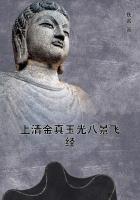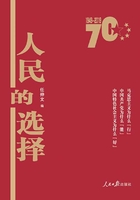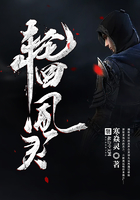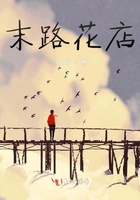While these factions, despite their disagreements, were ****** valiant efforts to carry on the war, other factions were stealthily cutting the ground from under them. There were two groups of men ripe for disaffection--original Unionists unreconciled to the Confederacy and indifferentists conscripted against their will.
History has been unduly silent about these disaffected men. At the time so real was the belief in state rights that contemporaries were reluctant to admit that any Southerner, once his State had seceded, could fail to be loyal to its commands.
Nevertheless in considerable areas--such, for example, as East Tennessee--the majority remained to the end openly for the Union, and there were large regions in the South to which until quite recently the eye of the student had not been turned. They were like deep shadows under mighty trees on the face of a brilliant landscape. When the peasant Unionist who had been forced into the army deserted, however, he found in these shadows a nucleus of desperate men ready to combine with him in opposition to the local authorities.
Thus were formed local bands of free companions who pillaged the civilian population. The desperadoes whom the deserters joined have been described by Professor Dodd as the "neglected byproducts" of the old regime. They were broken white men, or the children of such, of the sort that under other circumstances have congregated in the slums of great cities. Though the South lacked great cities, nevertheless it had its slum--a widespread slum, scattered among its swamps and forests. In these fastnesses were the lowest of the poor whites, in whom hatred of the dominant whites and vengeful malice against the negro burned like slow fires. When almost everywhere the countryside was stripped of its fighting men, these wretches emerged from their swamps and forests, like the Paris rabble emerging from its dens at the opening of the Revolution. But unlike the Frenchmen, they were too sodden to be capable of ideas. Like predatory wild beasts they revenged themselves upon the society that had cast them off, and with utter heartlessness they smote the now defenseless negro. In the old days, with the country well policed, the slaves had been protected against their fury, but war now changed all.
The negro villages--or "streets," as the term was--were without arms and without white police within call. They were ravaged by these marauders night after night, and negroes were not the only victims, for in remote districts even murder of the whites became a familiar horror.
The antiwar factions were not necessarily, however, users of violence. There were some men who cherished a dream which they labeled "reconstruction"; and there were certain others who believed in separate state action, still clinging to the illusion that any State had it in its power to escape from war by concluding a separate peace with the United States.
Yet neither of these illusions made much headway in the States -that had borne the strain of intellectual leadership. Virginia and South Carolina, though seldom seeing things eye to eye and finally drifting in opposite directions, put but little faith in either "reconstruction" or separate peace. Their leaders had learned the truth about men and nations; they knew that life is a grim business; they knew that war had unloosed passions that had to spend themselves and that could not be talked away.
But there was scattered over the Confederacy a population which lacked experience of the world and which included in the main those small farmers and semi-peasants who under the old regime were released from the burden of taxation and at the same time excluded from the benefits of education. Among these people the illusions of the higher classes were reflected without the ballast of mentality. Ready to fight on any provocation, yet circumscribed by their own natures, not understanding life, unable to picture to themselves different types and conditions, these people were as prone as children to confuse the world of their own desire with the world of fact. When hardship came, when taxation fell upon them with a great blow, when the war took a turn that necessitated imagination for its understanding and faith for its pursuit, these people with childlike simplicity immediately became panic-stricken. Like the similar class in the North, they had measureless faith in talk. Hence for them, as for Horace Greeley and many another, sprang up the notion that if only all their sort could be brought together for talk and talk and yet more talk, the Union could be "reconstructed" just as it used to be, and the cruel war would end. Before their eyes, as before Greeley in 1864, danced the fata morgana of a convention of all the States, talking, talking, talking.
The peace illusion centered in North Carolina, where the people were as enthusiastic for state sovereignty as were any Southerners. They had seceded mainly because they felt that this principle had been attacked. Having themselves little if any intention to promote slavery, they nevertheless were prompt to resent interference with the system or with any other Southern institution. Jonathan Worth said that they looked on both abolition and secession as children of the devil, and he put the responsibility for the secession of his State wholly upon Lincoln and his attempt to coerce the lower South. This attitude was probably characteristic of all classes in North Carolina. There also an unusually large percentage of men lacked education and knowledge of the world. We have seen how the first experience with taxation produced instant and violent reaction. The peasant farmers of the western counties and the general mass of the people began to distrust the planter class. They began asking if their allies, the other States, were controlled by that same class which seemed to be crushing them by the exaction of tithes.














